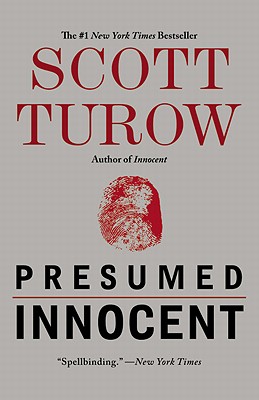During the summer of 1987, I was between my first and second years at law school. It was a given that most students took a ridiculously overpaid summer job before their third year where the main requirement was to go to lunch and dinner in fancy restaurants, but snagging one your first summer was rare—and one in New York rarer still. I lucked out with a job with a major Chicago law firm’s fledging New York City office.
Back then, I was reading legal precedents for school at a staggering rate, and so when I read for pleasure I gravitated towards biography. On my first day at the office, I showed up carrying a thick book on the education of Richard Nixon.
By July, however, everyone was reading the same book: Scott Turow’s Presumed Innocent. And I mean everyone. The partners, the associates, the summer associates, the secretaries, even the guys in the mailroom. While the lawyers could shut their doors to read during the day, the staff could only read during their lunch breaks. I remember reading Presumed Innocent that summer the way you might remember a song’s association with a particular time and place. Presumed Innocent, for me, was the summer of 1987.
I’ve read Presumed Innocent at least six times now, but there are two things that stand out about that first time. The first was this almost breathless feeling of disorientation. I felt the fear of an innocent man being falsely accused, but I was not entirely confident that Rusty Sabich was innocent.
The second was wondering whether I could write something like it. Being a writer was not an ambition I had harbored, and I could not imagine why I had that thought. Yet I vividly remember returning to school and telling my roommate that I wanted to write something like Presumed Innocent someday. He laughed and laughed and laughed.
I didn’t write a word for almost twenty years. As I worked my way through my law firm, from the eighty-hour weeks of an associate to making partner, and as I began my life outside the courtroom, marrying and having children, it remained an ambition of mine. When I finally decided to write, when I acquired enough life experience to push the fear of failing deep enough into the background, the first thing I did was reread Presumed Innocent again.
Adam Mitzner is the author of the legal thriller Losing Faith, out now from Simon & Schuster.








